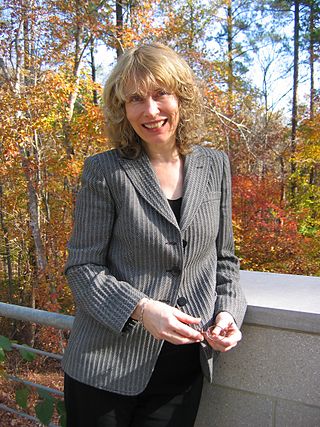Related Research Articles

Simone Lucie Ernestine Marie Bertrand de Beauvoir was a French existentialist philosopher, writer, social theorist, and feminist activist. Though she did not consider herself a philosopher, nor was she considered one at the time of her death, she had a significant influence on both feminist existentialism and feminist theory.
Equality feminism is a subset of the overall feminism movement and more specifically of the liberal feminist tradition that focuses on the basic similarities between men and women, and whose ultimate goal is the equality of both genders in all domains. This includes economic and political equality, equal access within the workplace, freedom from oppressive gender stereotyping, and an androgynous worldview.
Social philosophy examines questions about the foundations of social institutions, behavior, power structures, and interpretations of society in terms of ethical values rather than empirical relations. Social philosophers emphasize understanding the social contexts for political, legal, moral and cultural questions, and the development of novel theoretical frameworks, from social ontology to care ethics to cosmopolitan theories of democracy, natural law, human rights, gender equity and global justice.

The Second Sex is a 1949 book by the French existentialist philosopher Simone de Beauvoir, in which the author discusses the treatment of women in the present society as well as throughout all of history. Beauvoir researched and wrote the book in about 14 months between 1946 and 1949. She published the work in two volumes: Facts and Myths, and Lived Experience. Some chapters first appeared in the journal Les Temps modernes.
Feminist theory is the extension of feminism into theoretical, fictional, or philosophical discourse. It aims to understand the nature of gender inequality. It examines women's and men's social roles, experiences, interests, chores, and feminist politics in a variety of fields, such as anthropology and sociology, communication, media studies, psychoanalysis, political theory, home economics, literature, education, and philosophy.
Feminism is a collection of movements aimed at defining, establishing, and defending equal political, economic, and social rights for women. Existentialism is a philosophical and cultural movement which holds that the starting point of philosophical thinking must be the individual and the experiences of the individual, that moral thinking and scientific thinking together are not sufficient for understanding all of human existence, and, therefore, that a further set of categories, governed by the norm of authenticity, is necessary to understand human existence. This philosophy analyzes relationships between the individual and things, or other human beings, and how they limit or condition choice.
The ethics of care is a normative ethical theory that holds that moral action centers on interpersonal relationships and care or benevolence as a virtue. EoC is one of a cluster of normative ethical theories that were developed by some feminists and environmentalists since the 1980s. While consequentialist and deontological ethical theories emphasize generalizable standards and impartiality, ethics of care emphasize the importance of response to the individual. The distinction between the general and the individual is reflected in their different moral questions: "what is just?" versus "how to respond?" Carol Gilligan, who is considered the originator of the ethics of care, criticized the application of generalized standards as "morally problematic, since it breeds moral blindness or indifference".

Iris Marion Young was an American political theorist and socialist feminist who focused on the nature of justice and social difference. She served as Professor of Political Science at the University of Chicago and was affiliated with the Center for Gender Studies and the Human Rights program there. Her research covered contemporary political theory, feminist social theory, and normative analysis of public policy. She believed in the importance of political activism and encouraged her students to involve themselves in their communities.
Feminist philosophy is an approach to philosophy from a feminist perspective and also the employment of philosophical methods to feminist topics and questions. Feminist philosophy involves both reinterpreting philosophical texts and methods in order to supplement the feminist movement and attempts to criticise or re-evaluate the ideas of traditional philosophy from within a feminist framework.
Women have made significant contributions to philosophy throughout the history of the discipline. Ancient examples include Maitreyi, Gargi Vachaknavi, Hipparchia of Maroneia and Arete of Cyrene. Some women philosophers were accepted during the medieval and modern eras, but none became part of the Western canon until the 20th and 21st century, when some sources indicate that Susanne Langer, G.E.M. Anscombe, Hannah Arendt and Simone de Beauvoir entered the canon.

Toril Moi is James B. Duke Professor of Literature and Romance Studies and Professor of English, Philosophy and Theatre Studies at Duke University. Moi is also the Director of the Center for Philosophy, Arts, and Literature at Duke. As an undergraduate, she attended University of Bergen, where she studied in the Literature Department. Previously she held positions as a lecturer in French at the University of Oxford and as Director of the Center for Feminist Research at the University of Bergen, Norway. She lived in Oxford, United Kingdom from 1979 to 1989. Moi lives in North Carolina. She works on feminist theory and women's writing; on the intersections of literature, philosophy and aesthetics; and is fundamentally concerned with "finding ways of reading literature with philosophy and philosophy with literature without reducing the one to the other."

Miranda Fricker, FBA FAAS is a British philosopher who is Professor of Philosophy at New York University, Co-Director of the New York Institute of Philosophy, and Honorary Professor at the University of Sheffield. Fricker coined the term epistemic injustice, the concept of an injustice done against someone "specifically in their capacity as a knower", and explored the concept in her 2007 book Epistemic Injustice.
For the Canadian writer and editor, see Nancy Bauer.

The Man of Reason: "Male" and "Female" in Western Philosophy is a book about the association between maleness and reason in western philosophy by the Australian philosopher Genevieve Lloyd. The work received positive reviews. It has been called a twentieth century classic of feminist thought, and is widely read in the Nordic countries.
Alison Mary Jaggar is an American feminist philosopher born in England. She is College Professor of Distinction in the Philosophy and Women and Gender Studies departments at the University of Colorado, Boulder and Distinguished Research Professor at the University of Birmingham in the United Kingdom. She was one of the first people to introduce feminist concerns in to philosophy.
Feminist metaphysics aims to question how inquiries and answers in the field of metaphysics have supported sexism. Feminist metaphysics overlaps with fields such as the philosophy of mind and philosophy of self. Feminist metaphysicians such as Sally Haslanger, Ásta, and Judith Butler have sought to explain the nature of gender in the interest of advancing feminist goals.

Yvanka B. Raynova is a Bulgarian philosopher, feminist, editor, translator, and publisher. She is full professor of contemporary philosophy at the Institute of Philosophy and Sociology at the Bulgarian Academy of Sciences and director of the Institute for Axiological Research in Vienna. She elaborated a post-personalist hermeneutic phenomenology based on some gnostic ideas. Her works include studies on continental philosophy, phenomenology, hermeneutics, axiology, feminist philosophy, intercultural philosophy, religious studies, and translation studies.
Inga Bostad is a Norwegian philosopher, writer and educator. She served as prorector of the University of Oslo from 2009 to 2013 and as director of the Norwegian Centre for Human Rights from 2014 to 2017.
Bonnie J. Mann is an American philosopher and professor of philosophy at the University of Oregon. She is known for her expertise on feminist philosophy. She is co-editor of Hypatia: A Journal of Feminist Philosophy.
Eva Gothlin was a Swedish historian of ideas.
References
- ↑ "Academic staff, University of Oslo".
- ↑ Norhaug, Marita (2017-07-06). Partiality and Justice in Nursing Care. Routledge. p. 62. ISBN 978-0-415-79281-3.
- ↑ Marcum, James A. (2012-01-03). The Virtuouse Physician. Philosophy and Medicine. Vol. 114. Springer. pp. 117–118. doi:10.1007/978-94-007-2706-9. ISBN 978-94-007-2705-2. ISSN 0376-7418 . Retrieved 31 August 2019.
- ↑ "NORWAY: Woman philosophers aplenty". University World News. 31 January 2010.
- ↑ "The forgotten philosophers". Kilden Newsletter. 29 March 2011.
- ↑ Solberg, Ida Hove (2017-10-02). "The Changing Images of Simone de Beauvoir in Norway". NORA - Nordic Journal of Feminist and Gender Research. 25 (4): 317–333. doi:10.1080/08038740.2017.1378257. hdl: 10852/61071 . ISSN 0803-8740. S2CID 194768866.
- 1 2 "Tove Pettersen er ny professor ved STK - Senter for tverrfaglig kjønnsforskning" (in Norwegian). Retrieved 2019-08-31.
- ↑ "Emner innen filosofi, idéhistorie, kunsthistorie, gresk og latin - Universitetet i Oslo". www.uio.no (in Norwegian). Retrieved 2019-08-31.
- ↑ The International Simone de Beauvoir Society
- ↑ "About the Project". Gender and Philosophy. Retrieved 2019-08-31.
- ↑ Nistelrooij, Inge van (2011-12-12). "Serie Internationale Zorgethici 14: Tove Pettersen". Zorgethiek.nu (in Dutch). Retrieved 2019-08-31.
- ↑ "View of On Reconciling Care and Justice: An Interview with Tove Pettersen | Etikk i praksis - Nordic Journal of Applied Ethics". www.ntnu.no. Retrieved 2019-08-31.
- ↑ "BBC World Service - The Forum, Simone de Beauvoir: Feminist Thinker for Modern Times". BBC. Retrieved 2019-08-31.
- ↑ Filosofisk supplement, 3/2013. "Identitetsfilosofi og filosofiens identitet. En reportasje fra Filosofifesitvalen i Kragerø" (PDF).
{{cite web}}: CS1 maint: numeric names: authors list (link) - ↑ etasje. "Glemte tenkeres advokat - Apollon". www.apollon.uio.no (in Norwegian). Retrieved 2019-08-31.
- ↑ "Person #21868 - Tove Pettersen - Cristin". app.cristin.no. Retrieved 2019-08-31.